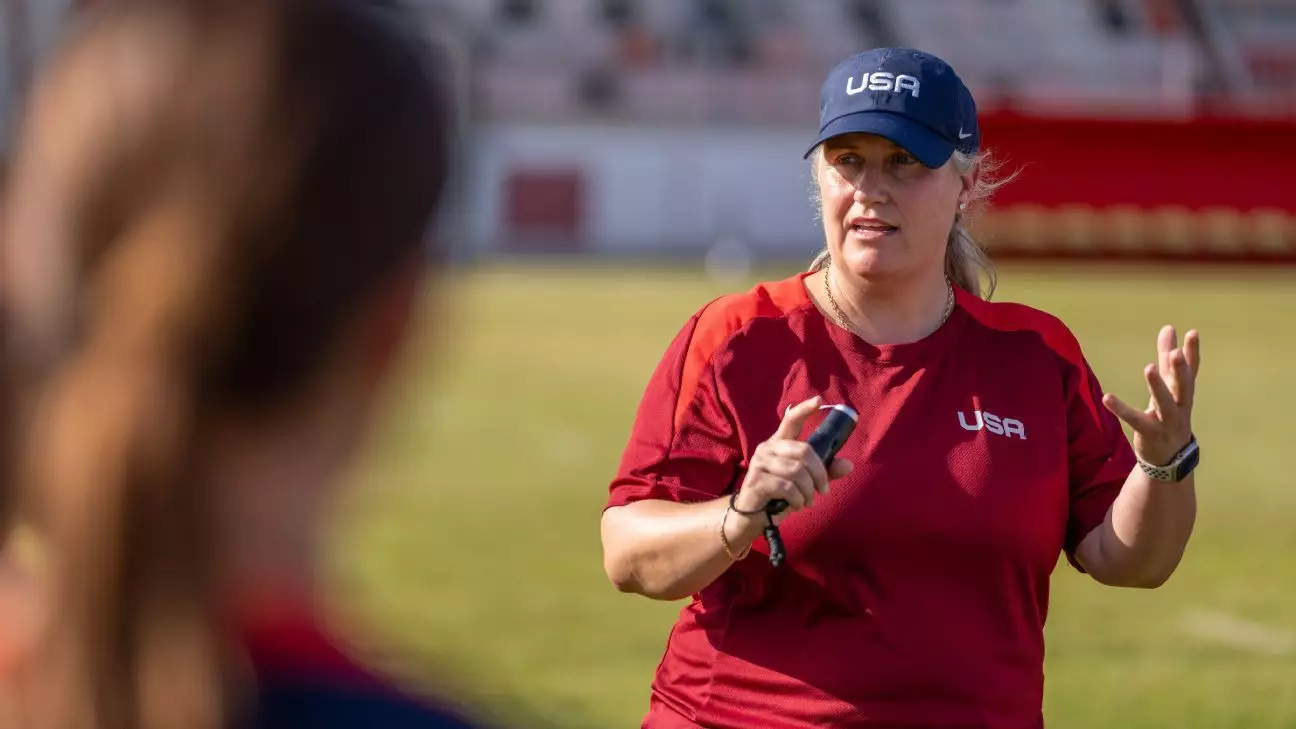United States women’s national team head coach Emma Hayes has shed light on the stark reality that women managers still face immense barriers when it comes to breaking into men’s football. Despite her own remarkable success in women’s football, Hayes acknowledges that the lack of representation of women in leadership positions in men’s teams is a major issue that needs to be addressed urgently.
Hayes highlighted the lack of opportunities for women in the male-dominated world of football, pointing out that even smaller steps towards gender equality, like the appointment of Hannah Dingley as the first woman head coach of a professional football team in England, are few and far between. The prevailing mentality that men’s football teams are not ready for a woman head coach reflects deep-rooted biases and stereotypes that continue to hinder progress in this area.
The notion that women are not capable of managing a dressing room full of male players is a stereotype that Hayes is determined to challenge. Drawing from her own experience managing a successful women’s team, she emphasizes that the ability to lead and coach is not contingent upon gender. The key, she argues, is to dismantle preconceived notions and give women the opportunity to showcase their skills and expertise on an equal playing field.
The Road Ahead
Hayes’ advocacy for greater representation of women in men’s football extends beyond her own personal ambitions. Her desire to see more women take on leadership roles in the sport is rooted in a firm belief in equality and fairness. As she rightfully points out, the best coach for the job should be hired based on merit and qualifications, regardless of gender. It is time for the footballing world to recognize the untapped potential of women coaches and to pave the way for a more inclusive and diverse future.
Emma Hayes’ candid assessment of the challenges faced by women managers in men’s football serves as a powerful call to action for the sports industry as a whole. By confronting the existing biases and stereotypes head-on, she is setting the stage for a more equitable and progressive environment where women can thrive and succeed in coaching roles traditionally reserved for men. It is clear that the path to greater gender diversity in football requires a collective effort to break down barriers and create space for talented individuals, regardless of their gender.
